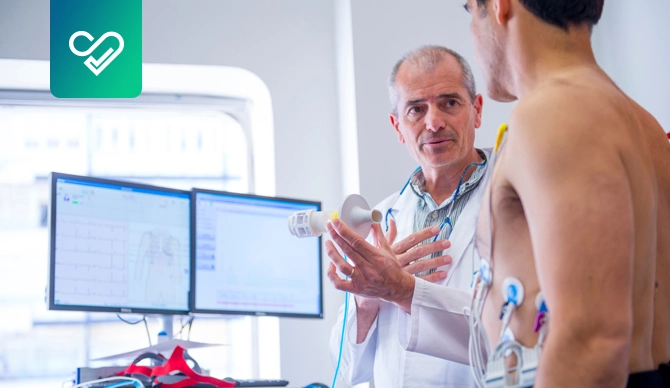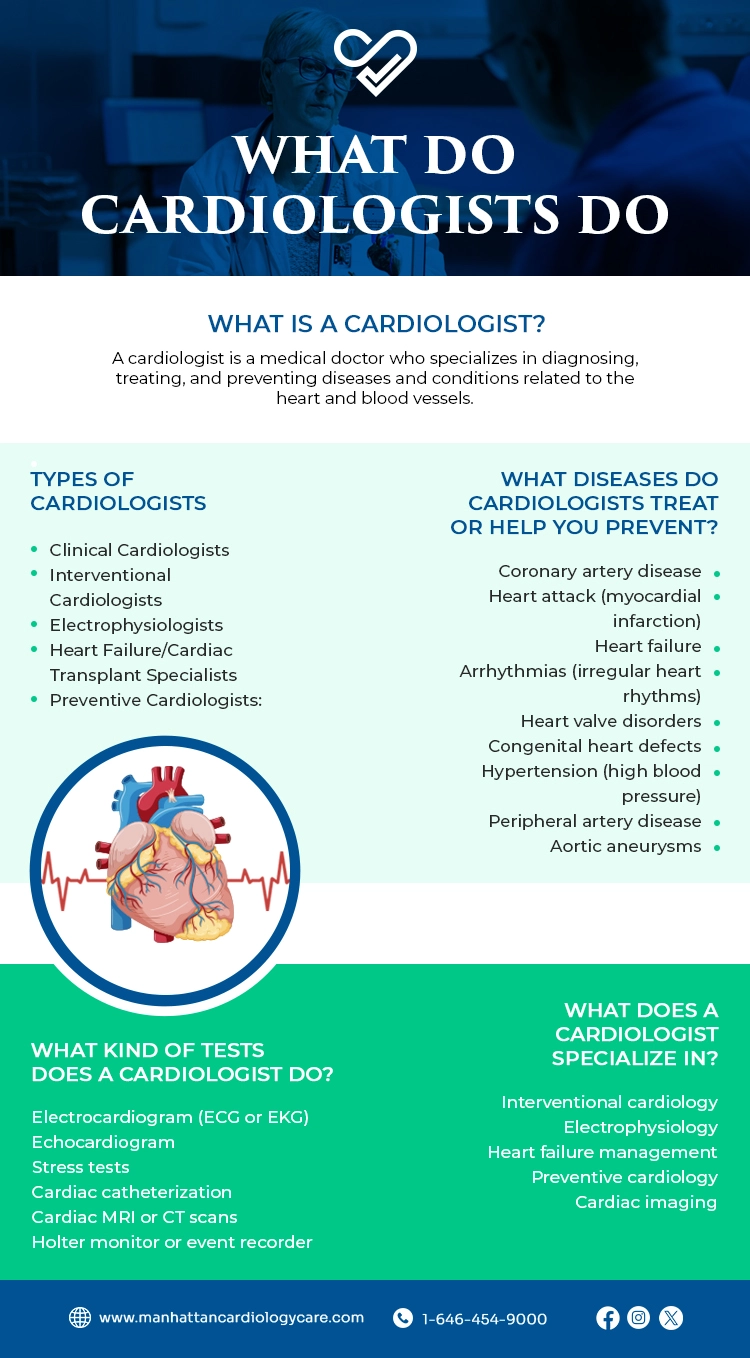Have you ever given a thought to the heroes who safeguard the most vital of our organs, the heart? – Cardiologists are the life savers, who help us maintain our heart health.
Cardiologists, with their expertise and dedication, play a crucial role in our health, ensuring longevity. But what do cardiologists do exactly?
Table of contents
What is a Cardiologist?
A cardiologist is a medical doctor who specializes in diagnosing, treating, and preventing diseases and conditions related to the heart and blood vessels.
After completing medical school, they undergo extensive training in internal medicine and then pursue additional specialized training in cardiology. This rigorous education provides them with the knowledge and skills needed to address a wide range of cardiovascular issues.
What Does a Cardiologist Do?
Cardiologists are responsible for a wide range of tasks that are all aimed at maintaining heart health and managing cardiovascular diseases.
They conduct thorough evaluations of patients, interpret diagnostic tests, prescribe medications, perform procedures such as angioplasty or pacemaker implantation, and provide guidance on lifestyle modifications to keep heart diseases away from us.
Types of Cardiologists
Within the field of cardiology, there are a couple of specialized areas, that cardiologists can specialize in. These types include:
- Clinical Cardiologists: This type of cardiologists focus on diagnosing and managing heart conditions through non-invasive methods such as medication and lifestyle interventions.
- Interventional Cardiologists: These cardiologists specialize in performing minimally invasive procedures to treat heart conditions, such as angioplasty and stent placement.
- Electrophysiologists: These heart experts specialize in diagnosing and treating heart rhythm disorders, using techniques like cardiac ablation and implanting pacemakers or defibrillators.
- Heart Failure/Cardiac Transplant Specialists: They specialize in managing advanced heart failures and may oversee heart transplant evaluations and care.
- Preventive Cardiologists: These professionals focus on preventing heart diseases through risk assessment, lifestyle modifications, and preventive treatments.
What Diseases Do Cardiologists Treat or Help You Prevent?
Cardiologists treat a wide range of conditions – this range of diseases are inclusive of:
- Coronary artery disease
- Heart attack (myocardial infarction)
- Heart failure
- Arrhythmias (irregular heart rhythms)
- Heart valve disorders
- Congenital heart defects
- Hypertension (high blood pressure)
- Peripheral artery disease
- Aortic aneurysms
What Kind of Tests Does a Cardiologist Do?
Cardiologists utilize various diagnostic tests to assess heart health and diagnose cardiovascular conditions, which include:
- Electrocardiogram (ECG or EKG)
- Echocardiogram
- Stress tests
- Cardiac catheterization
- Cardiac MRI or CT scans
- Holter monitor or event recorder
When to See a Cardiologist?
It’s essential to consult a cardiologist if you experience symptoms such as chest pain, shortness of breath, palpitations, dizziness, or fainting spells. Additionally, individuals with risk factors for heart disease, such as diabetes, hypertension, smoking, or a family history of heart disease, should undergo regular cardiac evaluations.
What to Expect at a Cardiologist Appointment?
During your visit to a cardiologist, you can expect a comprehensive evaluation, including a review of your medical history, a physical examination, and possibly diagnostic tests based on your symptoms and risk factors.
Your cardiologist will discuss your test results with you, provide personalized recommendations, and develop a treatment plan tailored to your needs.
Do I Need a Referral to See a Cardiologist?
In many cases, a referral from your primary care physician is necessary to see a cardiologist, particularly if you have health insurance. However, some cardiologists may accept self-referrals, especially in emergency situations or for preventive care appointments.
What Does a Cardiologist Specialize In?
Cardiologists may specialize in various areas, including:
- Interventional cardiology
- Electrophysiology
- Heart failure management
- Preventive cardiology
- Cardiac imaging
Each specialty focuses on specific aspects of cardiovascular care, allowing cardiologists to provide specialized expertise to their patients.
– Disclaimer –
This blog is for informational & educational purposes only, and does not intend to substitute any professional medical advice or consultation. For any health related concerns, please consult with your physician, or call 911.


